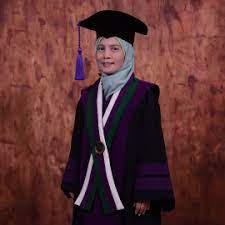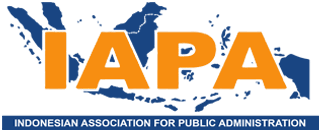SEEKING ANSWERS IN THE SHADOWS: THE USE OF AUTO-BASED ACCOUNTS ON TWITTER/X AS A PLATFORM FOR SOCIAL Q&A
DOI:
https://doi.org/10.30997/jsh.v15i1.12884Keywords:
anonymity, auto-based account, information-seeking, social q&a, twitterAbstract
Twitter/X has pioneered a new communication landscape through the introduction of auto-based accounts. In Indonesia, these accounts, commonly known as 'Menfess,' enable users to share anonymous messages on various topics. A significant feature of these accounts is their role in Social Q&A, acting as a platform for questioning and seeking information. This study aims to investigate how Indonesians utilize auto-based accounts for Social Q&A interactions. To achieve this goal, a qualitative approach was employed, involving in-depth interviews with 10 Indonesian youths aged between 18 and 25 years. The findings reveal that these accounts have evolved from mere channels for anonymous confessions to sophisticated forums for engagement and knowledge sharing, particularly among users discussing sensitive topics. A key observation is the strategic use of auto-based accounts, which not only broadens user perspectives but also amplifies their confidence. However, it is also noted that users predominantly seek information that aligns with their pre-existing views, a behavior indicative of confirmation bias. This tendency shapes their interactions with media and the assessment of source credibility. The study underscores the need for further exploration into how these accounts play a supportive role in helping users navigate through their states of cognitive dissonance.
References
Ammari, T., Schoenebeck, S., & Romero, D. (2019). Self-Declared Throwaway Accounts on Reddit: How Platform Affordances and Shared Norms Enable Parenting Disclosure and Support. Proceedings of the ACM on Human-Computer Interaction, 3(CSCW), 135. https://doi.org/10.1145/3359237
Avdijan, A. A., & Rumyeni. (2022). Pengungkapan Diri Mahasiswa tentang Kehidupan Perkuliahan di Media Sosial Twitter (Studi pada Akun Autobase@Collegemenfess). Komunikatif: Jurnal Ilmu Komunikasi, 11(2), 206-219. https://doi.org/10.33508/jk.v11i2.4250
Choi, E., Kitzie, V., & Shah, C. (2012). Developing a Typology of Online Q&A Models and Recommending the Right Model for Each Question Type. In Proceedings of ASIST Conference. Baltimore, Maryland.
Choi, E. (2013). Motivations and Expectations for Asking Questions Within Online Q&A. Bull. IEEE Tech. Comm. Digit. Libr., 9. Retrieved from https://bulletin.jcdl.org/Bulletin/v9n2/papers/choi.pdf
Costa, G., & Ortale, R. (2023). Here are the answers. What is your question? Bayesian collaborative tag-based recommendation of time-sensitive expertise in question-answering communities. Expert Systems with Applications, 225, 120042. https://doi.org/10.1016/j.eswa.2023.120042
Dwiwina, R. H., & Putri, K. Y. S. (2021). The use of the auto base accounts on Twitter as a media for sharing opinions: Case study of @collegemenfess account. Ultimacomm: Jurnal Ilmu Komunikasi, 13(1), 123-144. https://doi.org/10.31937/ultimacomm.v13i1.1603
de la Garza Montemayor, D. J., & Pineda Rasgado, X. M. (2023). Relationship between the Use of Social Networks and Mistrust of Mass Media among Mexican Youth: A Mixed-Methods and NLP Study. Social Sciences, 12(3), 179. https://doi.org/10.3390/socsci12030179
Hardiansyah, Z., & Wahyudi, R. (2022, March 18). Arti Kata Menfess yang Sering Dipakai di Twitter. Kompas.com. https://tekno.kompas.com/read/2022/03/18/14310097/arti-kata-menfess-yang-sering-dipakai-di-twitter
Morris, M. R., Teevan, J., & Panovich, K. (2010, April). What do people ask their social networks, and why? A survey study of status message Q&A behavior. In Proceedings of the SIGCHI conference on Human factors in computing systems (pp. 1739-1748).
Kanthawala, S., Vermeesch, A., Given, B., & Huh, J. (2016). Answers to health questions: Internet search results versus online health community responses. Journal of Medical Internet Research, 18(4) doi:10.2196/jmir.5369
Kriyantono, R., Kasim, A., Safitri, R., Adila, I., Prasetya, A. B., Febriani, N., Dewi, W. W. A., Saleh, A. M., & Said, M. F. (2023). Is Social Media the Top Priority for Seeking and Sharing Information About COVID-19 Among Indonesian Students? Journal of Communication, Malaysian Journal of Communication, 39(1), 144-165. E-ISSN: 2289-1528. https://doi.org/10.17576/JKMJC-2023-3901-09
Lee, D. H., & Brusilovsky, P. (2017). Investigating personalized social navigation support in the context of open learner model. Information Processing & Management, 53(5), 1201-1214.
Mustafaraj, E., Metaxas, P. T., Finn, S., & Monroy-Hernandez, A. (2012). Hiding in plain sight: A tale of trust and mistrust inside a community of citizen reporters. In Proceedings of the 6th International AAAI Conference on Weblogs and Social Media (ICWSM 12) 250-257.
Pramiyati, T., Supriana, I., & Purwarianti, A. (2015). Sebuah Survey: Tingkat Kepercayaan Pengguna Terhadap Informasi di Sosial Media (JSI), 7(1).
Ractham, P., Chen, C., & Nakayama, M. (2013). The trust in online discussion forums and how they influence patients' intention to adopt medical tourism services. In The 10th International Conference on e-Business (ICE-B 2013). [Conference session].
Riauan, M. A. I., & Salsabila, Z. F. (2022). Virtual Communication Pattern Of Twitter Autobase Management (Study Of Sharing Real Life Things Media On @bertanyarl Account). Jurnal Komunikasi, 14(1), 192–203. http://dx.doi.org/10.24912/jk.v14i1.16118
Peddinti, S. T., Ross, K. W., & Cappos, J. (2017). User anonymity on Twitter. IEEE Security and Privacy, 15(3), 84-87. https://doi.org/10.1109/MSP.2017.74
Wang, L., & Ngai, S. S. (2020). The effects of anonymity, invisibility, asynchrony, and moral disengagement on cyberbullying perpetration among school-aged children in China. Children and Youth Services Review, 119, Article 105613. https://doi.org/10.1016/j.childyouth.2020.105613
Downloads
Published
How to Cite
Issue
Section
License
Copyright (c) 2024 Jurnal Sosial Humaniora

This work is licensed under a Creative Commons Attribution-ShareAlike 4.0 International License.
Authors submitting manuscripts must understand and agree to copyright the manuscript of the article was transferred to OJS Djuanda University. All rights reserved. The copyright release statement for the Journal of Social Humanities is set out in the Agreement Transfer of Copyright. This work is licensed under Creative Commons Attribution-ShareAlike (CC BY-SA) version 4.0 where Author and Readers can copy and redistribute material in any media or format , as well as mixing, modifying and building materials for any purpose, but they must provide appropriate credit (citing articles or content), provides a link to the license, and indicates when changes have been made. If you mix, modify, or develop, the materials you have to distribute your contributions are under the same license as the originals.
















